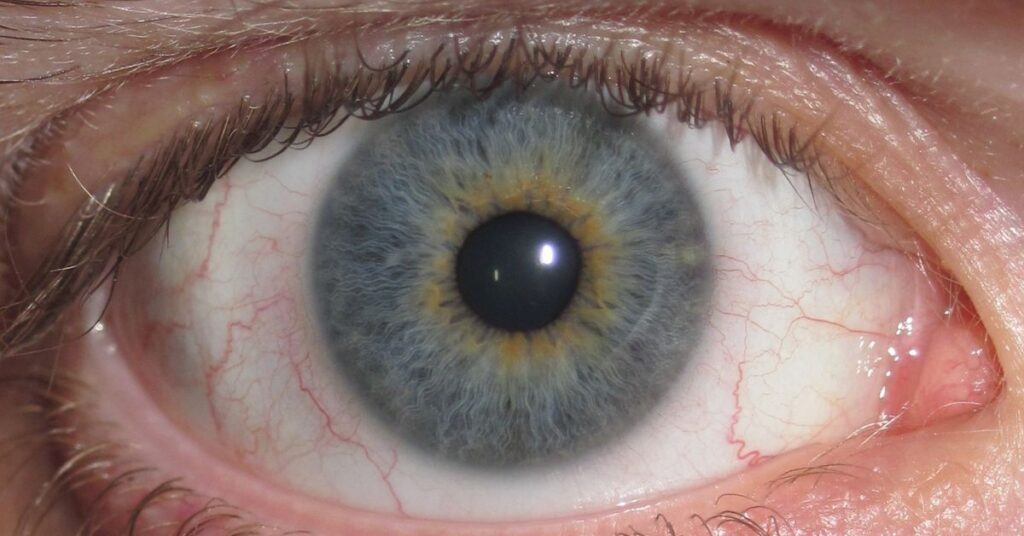Constant dry and irritated eyes are more than just a nuisance—they can signal an underlying issue that affects your daily comfort and overall eye health. Whether it’s a gritty feeling, burning, or the sensation of something in your eye, these symptoms can interfere with reading, screen use, and even sleep. Understanding the causes behind persistent eye dryness helps in finding the right solution and restoring comfort to your vision.
What Is Dry Eye Syndrome?
Dry eye syndrome occurs when your eyes don’t produce enough tears or the tears evaporate too quickly. This leads to:
- Inadequate moisture
- Inflammation of the eye surface
- Discomfort and visual disturbances
It can be temporary or chronic, depending on the cause and lifestyle factors.
Common Symptoms of Dry and Irritated Eyes
If your eyes often feel dry or irritated, you may notice:
- Burning or stinging sensation
- Redness and itchiness
- A gritty or sandy feeling
- Blurry vision that improves with blinking
- Sensitivity to light
- Watery eyes (a reflex to dryness)
These symptoms can range from mild to severe and may occur in one or both eyes.
Common Causes of Chronic Eye Dryness
Environmental Factors
- Dry air from air conditioners or heaters
- Windy or dusty conditions
- Smoke exposure
These elements can cause tear film to evaporate faster, leaving your eyes unprotected.
Screen Time and Blinking
Staring at screens (computer, phone, TV) reduces blinking rate. Less blinking means:
- Tears don’t spread evenly
- Eyes dry out faster
This is one of the top causes of dry eyes in the digital age.
Aging
As we age, tear production naturally decreases. People over 50 are more likely to experience:
- Reduced tear quality
- Eye surface inflammation
- Increased risk of chronic dryness
Contact Lens Use
Wearing contact lenses for long periods can:
- Absorb natural tears
- Disrupt tear film
- Increase irritation and dryness
Allergies
Allergic reactions to pollen, dust, pet dander, or makeup can:
- Cause itchy, watery, and dry eyes
- Trigger inflammation that worsens symptoms
Hormonal Changes
Hormonal imbalances, especially in women during:
- Pregnancy
- Menopause
- Use of birth control pills
can lead to reduced tear production and irritation.
Medications
Certain medications can interfere with tear production, such as:
- Antihistamines
- Antidepressants
- Blood pressure medications
- Birth control pills
Autoimmune and Health Conditions
Chronic illnesses that affect the immune system, such as:
- Sjögren’s syndrome
- Rheumatoid arthritis
- Lupus
can damage tear glands and lead to persistent dryness.
When to See an Eye Specialist
You should visit an eye doctor if:
- Symptoms persist for more than a week
- Over-the-counter drops offer no relief
- Vision becomes blurry
- Your eyes become extremely red or painful
An eye specialist can diagnose the exact cause and offer targeted treatment.
How Is Dry Eye Diagnosed?
An optometrist or ophthalmologist may:
- Examine your eyes under a microscope
- Measure tear production (Schirmer test)
- Check tear film quality and evaporation rate
These tests help identify if your dryness is due to low tear volume, poor tear quality, or other causes.
Effective Treatments for Dry and Irritated Eyes
Artificial Tears
Lubricating eye drops can provide immediate relief. Options include:
- Preservative-free drops (for frequent use)
- Gel drops (for nighttime relief)
Prescription Medications
If symptoms are severe, doctors may prescribe:
- Anti-inflammatory eye drops (like cyclosporine)
- Tear-stimulating medications
- Oral omega-3 supplements
Lifestyle and Home Remedies
- Take regular screen breaks (20-20-20 rule)
- Use a humidifier to add moisture to the air
- Stay hydrated throughout the day
- Avoid smoking and smoke exposure
Warm Compresses and Lid Hygiene
Applying a warm compress and cleaning eyelids can help:
- Unclog oil glands
- Improve tear film stability
- Reduce irritation caused by blepharitis or meibomian gland dysfunction
Punctal Plugs
In some cases, tiny plugs can be inserted into tear ducts to slow tear drainage, keeping eyes moist longer.
Light Therapy and Other Procedures
Advanced treatments include:
- Intense Pulsed Light (IPL) for inflammation
- Thermal pulsation devices to clear blocked oil glands
Can Dry Eyes Cause Permanent Damage?
In severe or untreated cases, dry eyes can lead to:
- Eye infections
- Corneal damage or scarring
- Vision loss
That’s why it’s important not to ignore persistent symptoms and seek proper care.
Preventing Dry and Irritated Eyes
To reduce the chances of dryness:
- Wear wraparound sunglasses outdoors
- Take digital breaks regularly
- Blink consciously during screen use
- Avoid rubbing your eyes
- Remove makeup thoroughly before sleeping
Conclusion
Persistent dry and irritated eyes can be more than just an inconvenience—they may indicate a deeper problem with tear production or eye health. From environmental triggers to underlying medical conditions, many factors can contribute to chronic dryness. If your symptoms don’t improve with basic care, it’s time to consult an eye specialist who can diagnose the root cause and recommend personalized treatment for long-lasting relief and eye comfort.
FAQs
Can dry eyes be cured permanently?
While not always curable, dry eyes can usually be managed effectively with treatment and lifestyle adjustments.
Are over-the-counter eye drops safe for daily use?
Yes, but it’s best to choose preservative-free drops if using them frequently.
Why do my eyes water if they’re dry?
Watery eyes can be a reflex to dryness, as your body tries to compensate by producing more tears.
Can stress cause dry eyes?
Yes, stress can affect hormone levels and blinking patterns, both of which can contribute to dryness.
Is it safe to wear contact lenses if I have dry eyes?
It depends. Your eye doctor may recommend specific lenses or switching to glasses during flare-ups.

